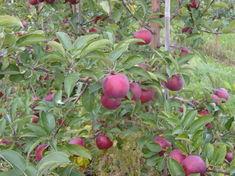

The New York apple industry has “responded well” to the ban on the use of waxes containing morpholine, which began in late September with the UK’s Food Standards Agency and has moved on to become a pan-European issue.
A significant volume of the Empire being shipped to Europe last season was waxed, but growers and shippers have moved to either send unwaxed apples to Europe, or apples treated with non-morpholine waxes.
After a difficult couple of months as New York’s growers and shippers invested time and money in finding the best solution for their European customers, the issue has been ironed out. “The new testing for morpholine created broad impacts here while unwaxed fruit was being sent to the UK,” said Jim Allen, president of the New York Apple Association. “There was a scramble to adjust to the new testing requirements, which meant that even previously untraceable amounts of morpholine were being detected - and that has undeniably causing some disruption to trade.
“The NY industry has made more costly changes in order to service and meet the needs for our European customers. The issues this autumn were particularly difficult, as no tolerances were allowable even for the limited volumes that were in transit when the new detection levels were put in place.”
Allen said: “The Eastern US has long traded apples to the UK and we have many loyal customers there and also many loyal suppliers here. Therefore, when market issues have arisen and new requirements have been put forward, the New York industry has met them.”
He cautions, however, that continuing price pressure, when allied with the increased costs involved with adapting to new market demands, could lead to exporters into the EU reassessing their options. “The EU market in general is notorious for its demanding requirements on suppliers and each change to these requirements puts more pressure on the NY growers - just as it will for the EU’s domestic suppliers,” he said. “With the general economic downturn in both the EU and the US, multiple retailers are pressing harder and harder to keep pricing down - and soon the price pressures combined with the ever increasing regulatory and market demands will put the apple growers into a difficult position.
“This trend cannot and will not sustain the supply side. While we want to continue to service these important markets, the costs may be too great.”